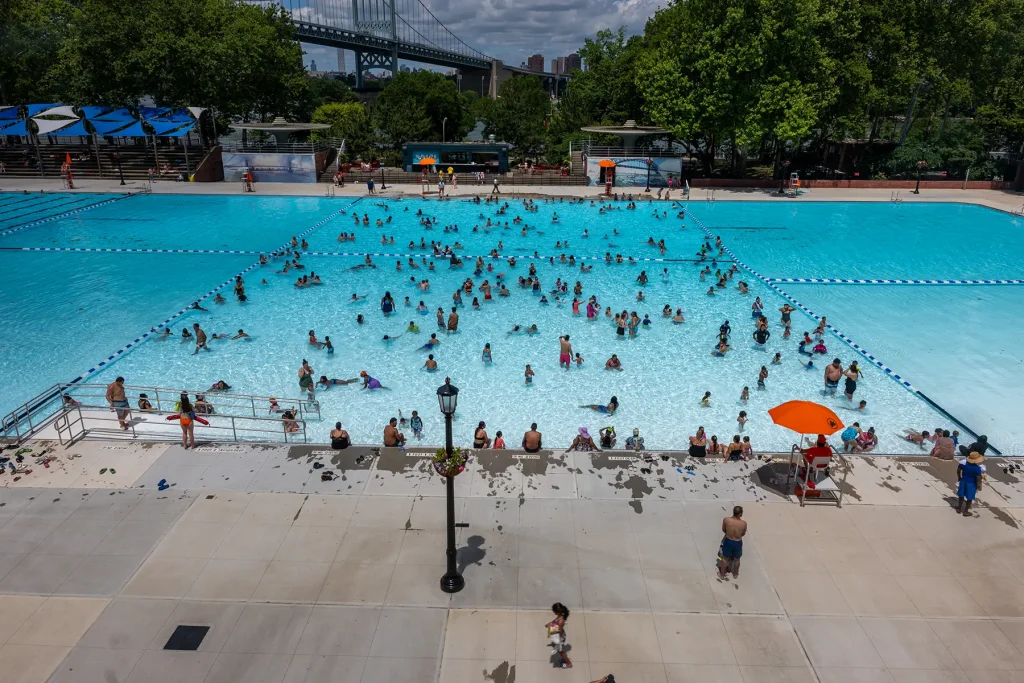
2025 – Over the past few years, the Foundation has expanded its work to strengthen NYC’s social infrastructure through investing in advocacy for increased public and private funding of parks and open spaces, and improvements in less resourced parks and public spaces throughout the city. Access to New York City’s public pools and beaches has never been more challenging.
All 51 of New York City’s public outdoor pools had a capacity restriction of some kind when they opened for the 2023 summer season. Many young people and children in New York City have limited or no ability to swim, as reduced access to swim facilities remains an avoidable public safety hazard. A lack of investment in swim facilities, and inequitable access to pools, beaches, and outdoor green spaces, disproportionately impacts marginalized communities and people of color.
Drowning is the leading cause of unintentional injury-related death among children aged 1 to 14. New York City, surrounded by water, has the highest population density of any major city in the county, and the need for safe and supervised aquatic spaces is paramount.
While the lifeguard shortage in New York City reflects a national crisis, local factors are also at work. New York City has tougher lifeguard qualifying requirements, which include testing skills essential for ocean and open water locations, and the city requires lifeguards to be trained through the Parks Department. This lack of flexibility means few location options for applicants to take certification exams.
The confluence of these factors means the need for more lifeguard training and smarter collaboration between aquatics agencies will remain high in the years ahead. Revson’s support has allowed the Y to almost quadruple their certifications of lifeguards.
They certified 180 lifeguards in 2022 and 570 in 2023 and 2024.
With Revson’s support, the Y started and co-leads the NYC Interorganizational Lifeguard Task Force which has 13 members , including all the major nonprofit aquatics providers plus ABNY, CUNY, the Mayor’s Office, the Department of Education, and the NYC Health and Parks Departments. The Task Force has become the only citywide private-public venue for strategizing short- and long-term solutions to the lifeguard shortage. The Task Force has created new collaborations across the public and nonprofit aquatics providers, enhancing recruitment. They have also started to reduce certification differences and have successfully advocated for increased public investment.
Read more about “why pools matter to cities and where New York falls short” in Julie Sandorf’s piece “Water, Water Everywhere” in Vital City
Photo credit: Spencer Platt/Getty Images
[Pools] are assets that calm tensions when the weather is stifling, keep us fit, combat isolation, help hold neighborhoods together, provide employment for young people and, not least, help stave off the worst effects of a climate that’s growing hotter by the year.
Julie Sandorf in Water, Water Everywhere, Charles H. Revson Foundation
